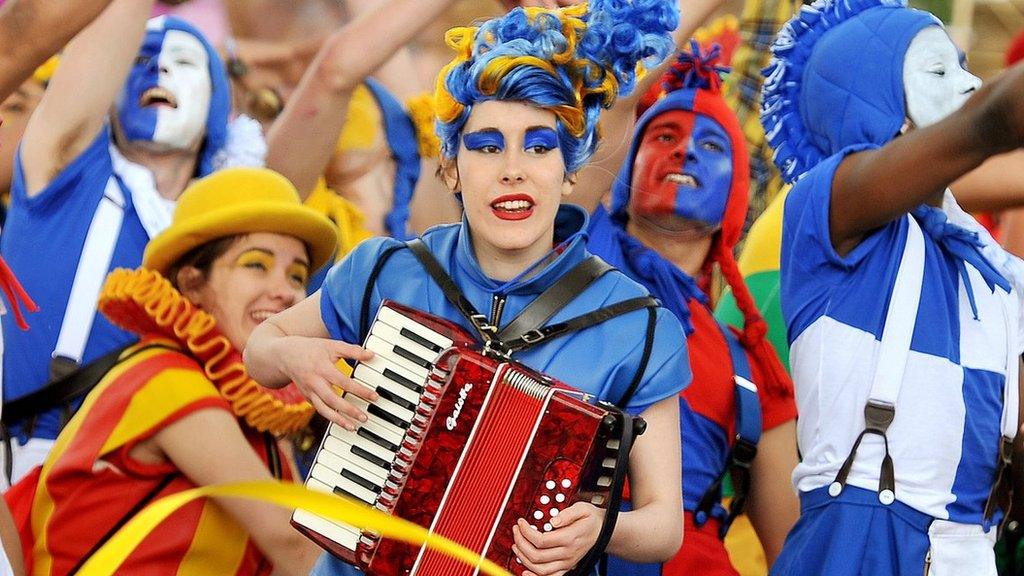English National Opera cut in Arts Council England funding shake-up
- Published
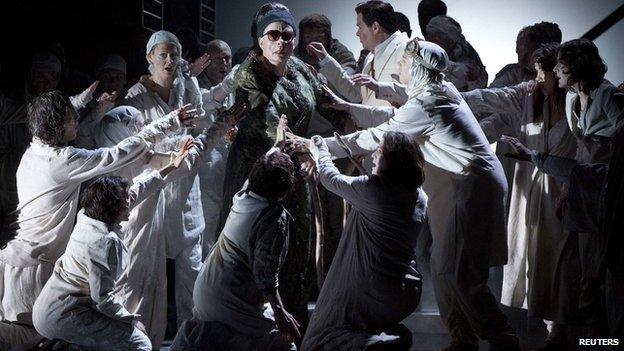
The English National Opera 'has struggled to reach box office targets and to achieve long-term stability'
The English National Opera has had its annual funding cut by 29% by Arts Council England, as part of a shake-up of how arts funding is distributed.
Some 670 arts, music and other cultural bodies in England are sharing annual grants totalling £340m per year.
Overall funding levels have remained relatively stable after National Lottery funds were used to make up a shortfall left by government cuts.
Matthew Bourne's dance company is among those joining the portfolio.
New Adventures and its charitable arm Re:Bourne will receive £1.3m a year.
Arts Council Chairman Sir Peter Bazalgette says the "overall picture is positive"
Overall, 33 organisations have been removed from the Arts Council's roster and three quarters of the 670 organisations have had their funding frozen.
The ENO has had its annual grant cut from £17.2m in 2014/15 to £12.4m in the next financial year.
An Arts Council statement said: "In spite of the indisputably ambitious quality of work and the important role this company plays in developing talent, ENO has struggled to reach box office targets and to achieve long-term stability."
The opera company will, however, get a further £7.6m in one-off "transitional funding" as it moves to a new business model that includes working with commercial producers to stage modern musicals.
Regional rebalance
ENO artistic director John Berry said the company had been working with the Arts Council for some time "to develop a new business plan which recognises the challenging funding climate and reduces the cost to the public purse".
He added the plan would enable them to "create an exciting and sustainable future for ENO and maintain our artistic quality, ambition and reach, nationally and internationally".
Elsewhere, funding has been increased outside London following calls for a fairer balance between the capital and the rest of England.
The Arts Council said 53% of its annual funding would go to National Portfolio Organisations outside London between 2015-18, up from 49% between 2008-12.
"This doesn't scratch the surface in terms of a national picture where taxpayers' funding to the arts and culture in this country is skewed 14:1 in favour of London," said Peter Stark, who co-authored a report last year on the imbalance of arts funding across England.
Arts Council England annual funding 2015/16
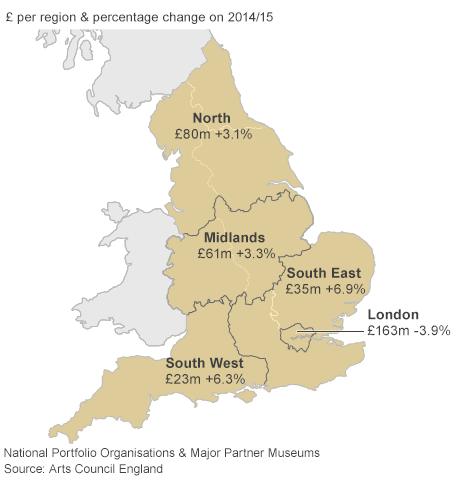
Includes National Portfolio Organisations and Major Partner Museums.
Arts Council England Chairman Sir Peter Bazalgette described it as a "strong and well balanced portfolio".
He said England was "in the premier league of creative nations and this portfolio will keep us on top in an era of tight funding".
Arts Council chief executive Alan Davey said the portfolio was about "investment in new talent whilst supporting stability and continuity".
But he warned sustaining the overall funding for the National Portfolio Organisations had "come at a real price" because other grants, such as for capital spending, had been "reduced significantly" as a result.
"The long term health of our arts and culture depends on continued commitment from central and local government to invest in our sector," he said.
Other winners and losers include:
The Orange Tree theatre in Richmond, south-west London, has been cut completely - on its new artistic director Paul Miller's first day in the job.
Leeds-based theatre company Red Ladder, the Theatre Royal Bury St Edmunds and Edward Hall's touring theatre company Propeller have also had 100% cuts.
Dance organisations will receive an extra £10m over the next three years.
They include Northern Ballet (up 21% to £3.1m between 2014/15 and 2015/16) and Birmingham Royal Ballet (up 6.5% to £7.9m).
Choreographer Akram Khan's company has received a 130% increase to £500,610 per year.
Opera has fared less well. As well as the ENO cut, the Royal Opera House has lost £555,000 per year (3.7%) because the Arts Council says its salaries are too high and it can find other efficiency savings.
Opera North will get an extra £714,500, taking it to £10.4m, because its business model was "under considerable stress".
The Southbank Centre, National Theatre and Royal Shakespeare Company, three of the biggest beasts in the Arts Council portfolio, have each taken 3.6% cuts.
Bristol's Arnolfini art gallery has been cut by 27%, taking its annual grant to £750,000.
The Lowry arts complex in Salford is down 22% to £800,000 per year.
The Barbican in London has lost 18%, taking its grant to £480,000 next year.
The Manchester International Festival has been rewarded for its recent success with a 50% increase to £729,000.
Hull Truck Theatre, which has been in financial trouble in recent years, has a 45% increase to £791,000.
New additions to the roster include Derby Theatre (£500,000 per year), Tyne & Wear Archives & Museums (£500,000) and Bristol's Colston Hall (£325,000).
Manchester's Cornerhouse has gone up 30% to £1.3m a year in advance of merging with the city's Library Theatre and moving to a new building under the name Home.
London's Unicorn Theatre for Children has had a 28% increase, taking it to £1.3m per year.
Brass Bands England has received a 126% increase to £142,000 per year.
As well as the National Portfolio Organisations, the Arts Council announced museums in Dudley, Hull, Derby, Sheffield and Penzance would join the roster of 21 major partner museums.
Arts funding elsewhere in the UK is determined by separate Arts Councils in Wales and Northern Ireland and Creative Scotland.
- Published1 July 2014
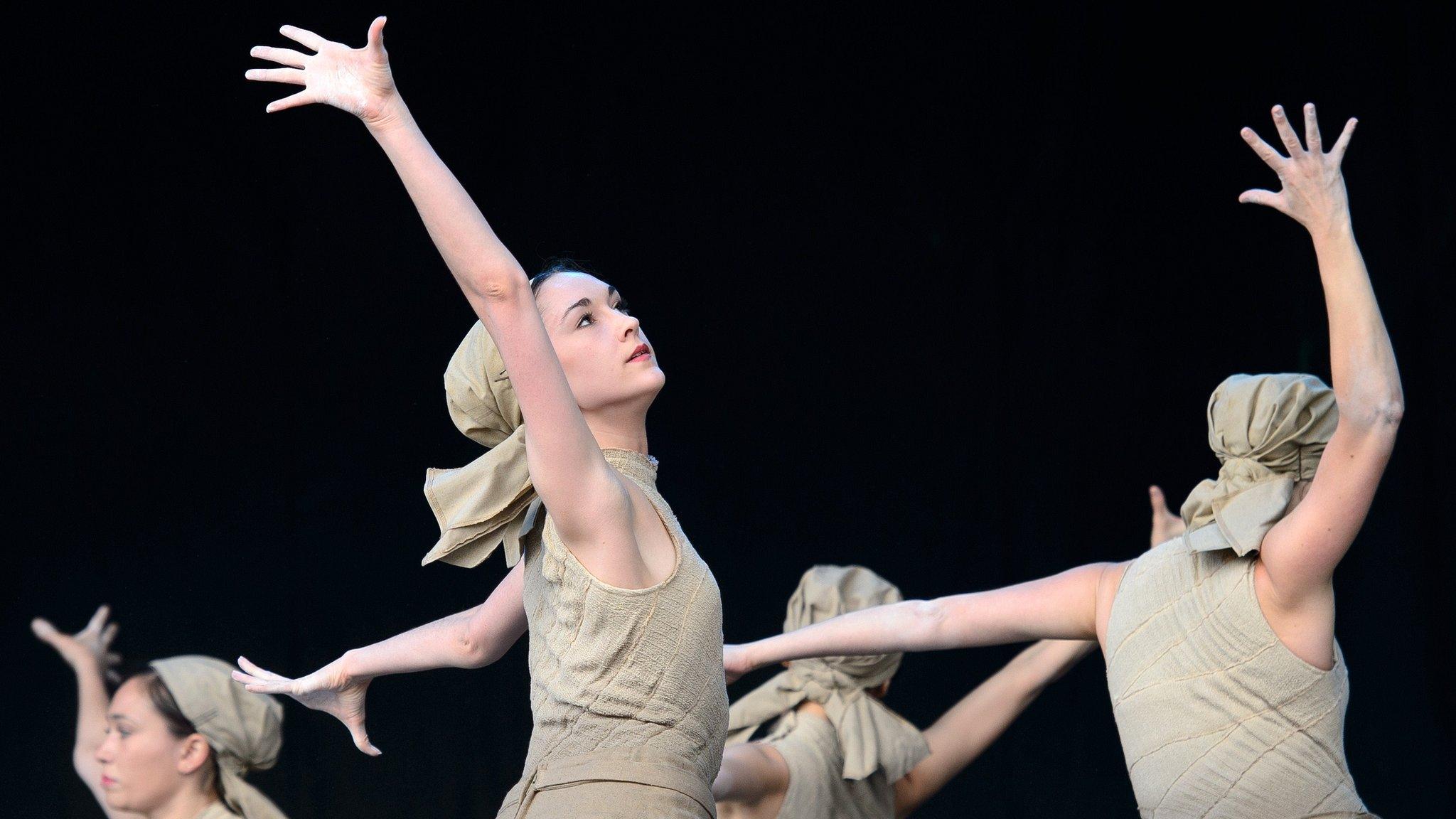
- Published1 July 2014
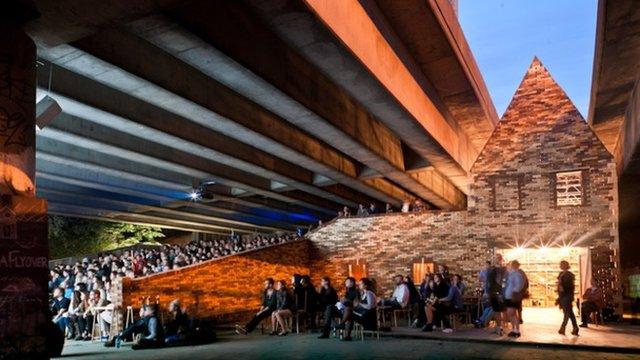
- Published29 April 2014
eno,tristramkenton.jpg)
- Published17 June 2014
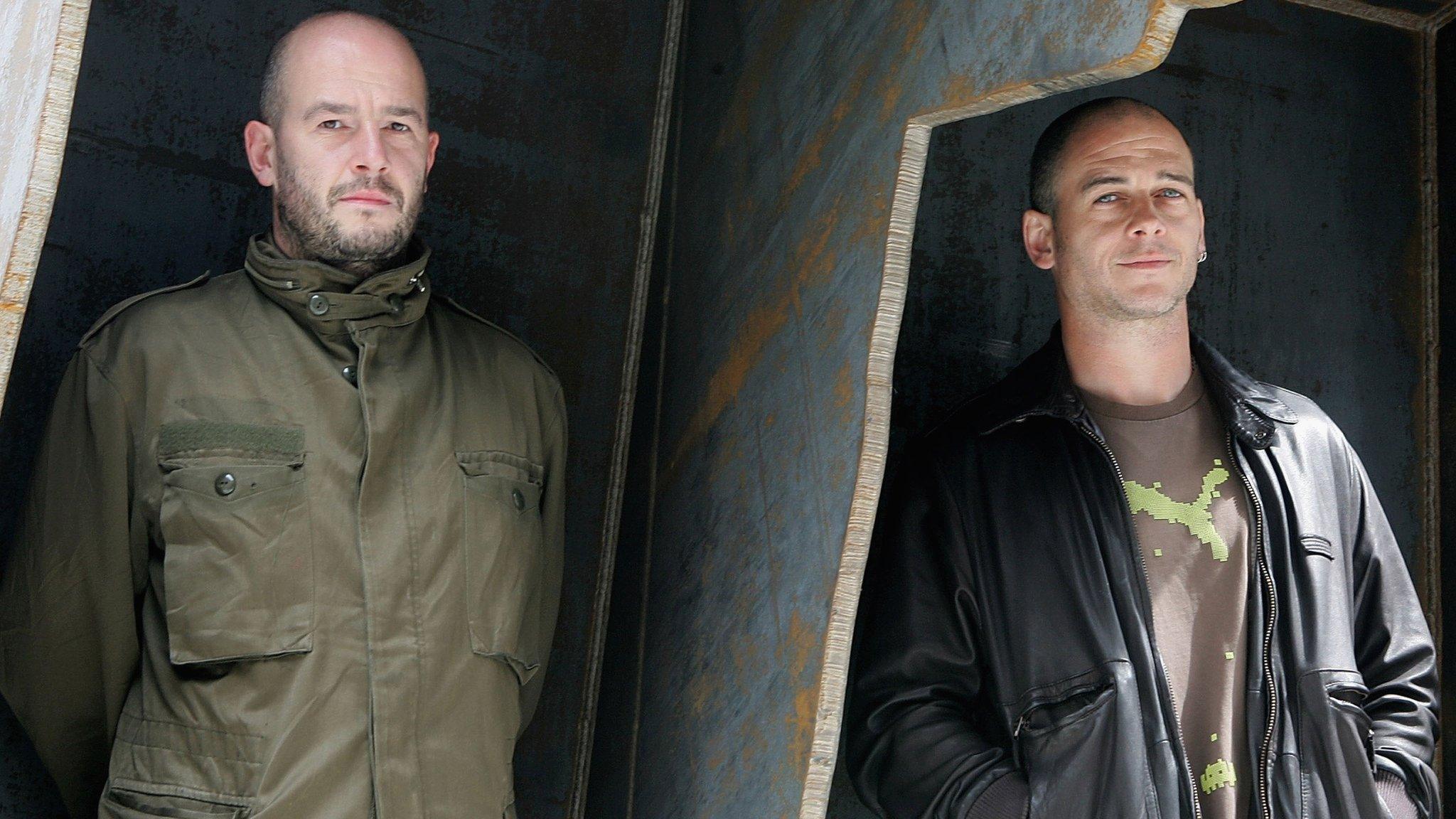
- Published11 June 2014
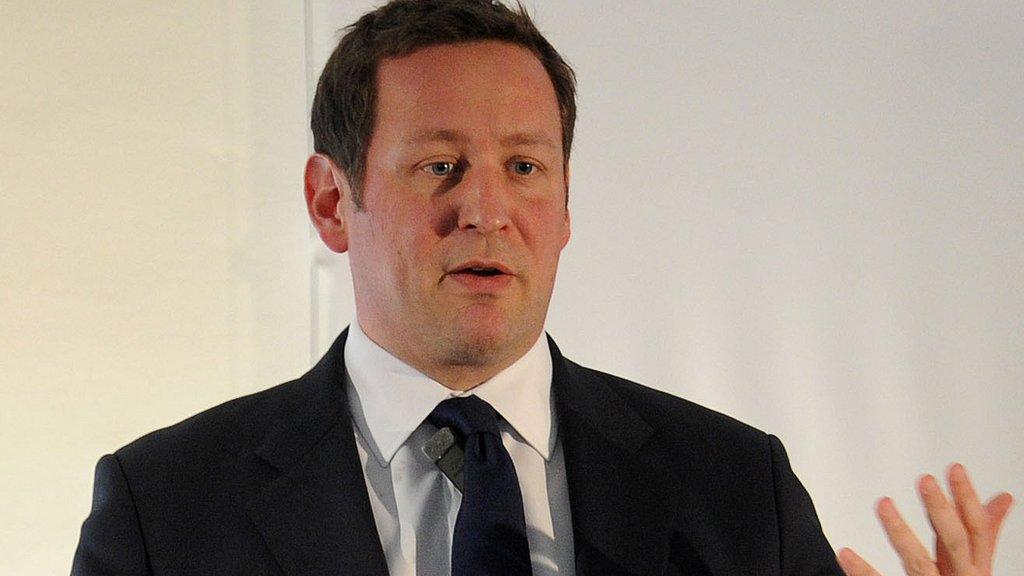
- Published9 June 2014
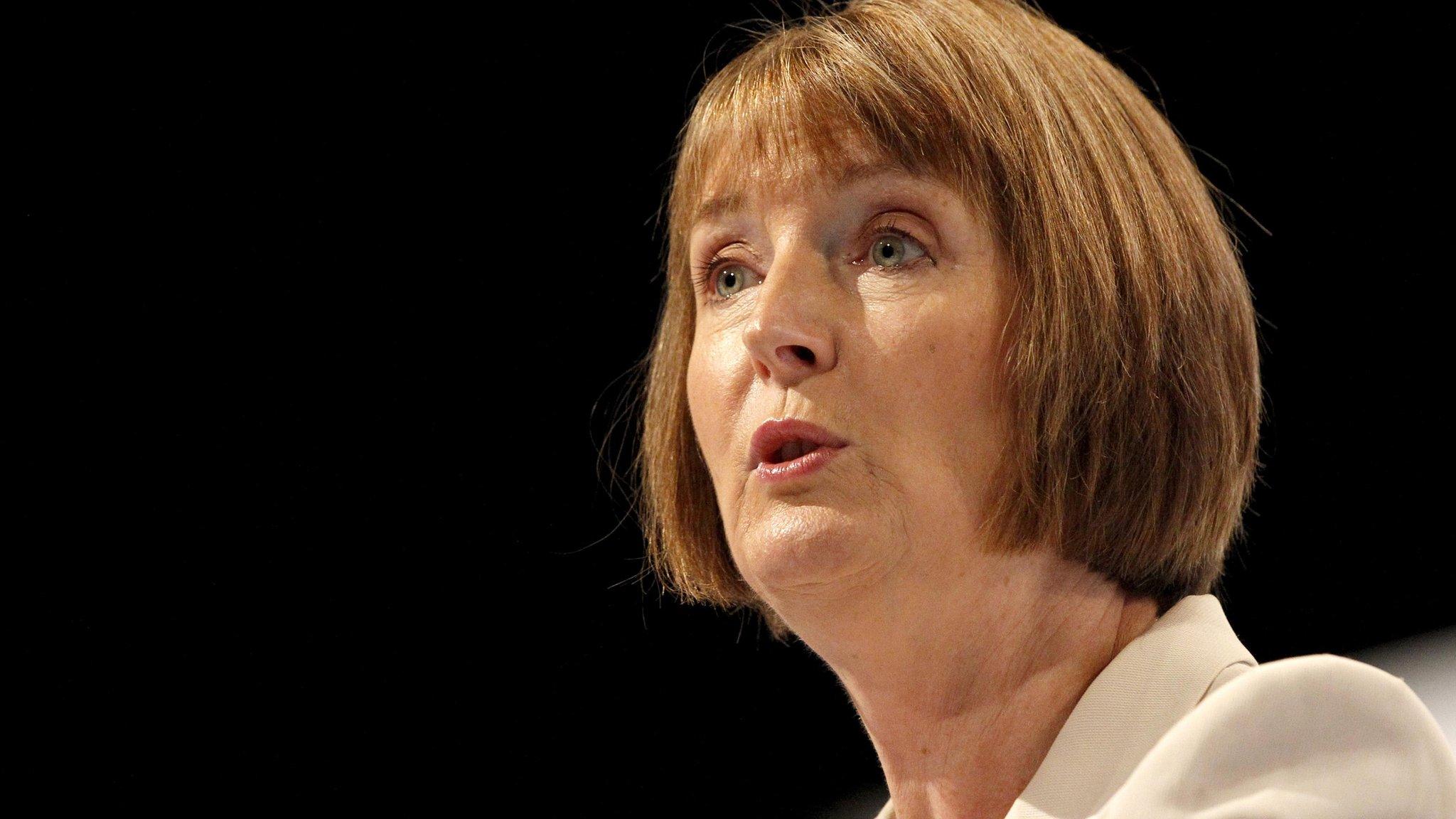
- Published6 June 2014
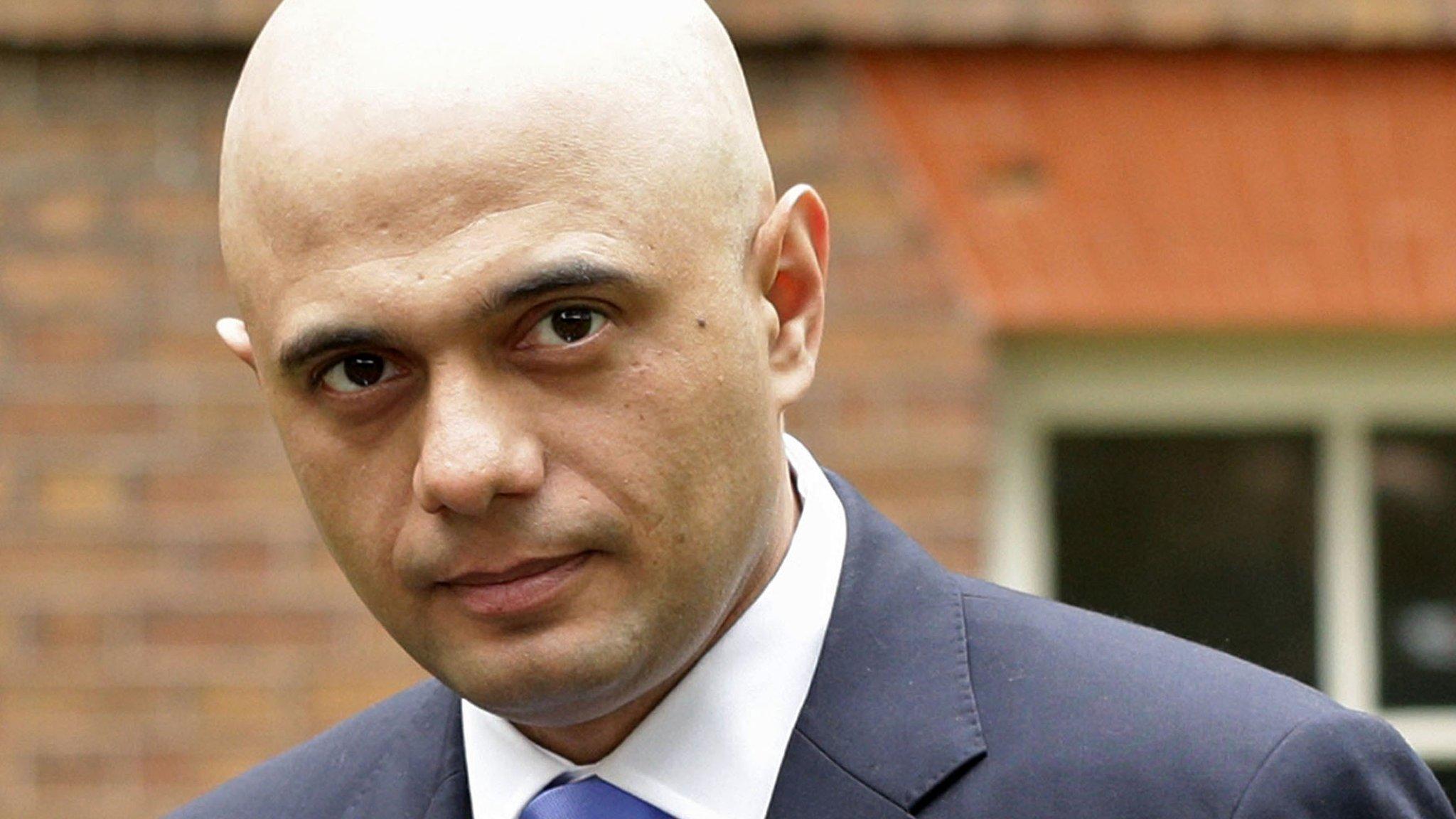
- Published28 May 2014
